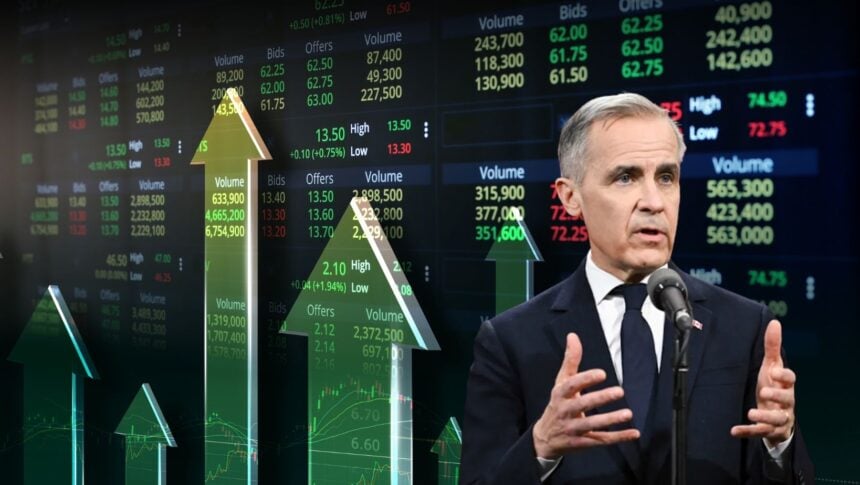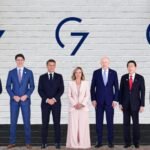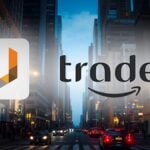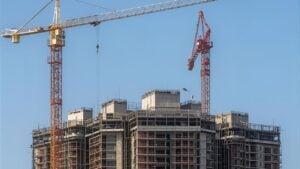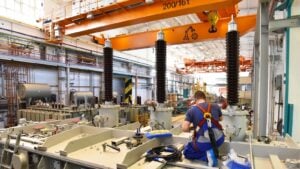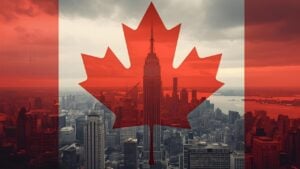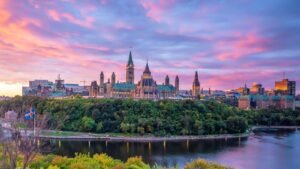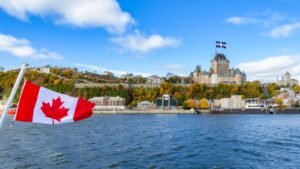Prime Minister Mark Carney defended his pace of international travel on Saturday as he concluded meetings in London, saying recent trips are part of a deliberate push to expand Canada’s trade ties and pull more private capital into domestic projects.
Speaking to reporters in the British capital, Carney said face to face diplomacy remains “necessary to opening new markets for Canadian products,” and that courting investors directly is one of the fastest ways to finance growth at home.
The London swing focused on two tracks: On the political side, Carney met with U.K. Prime Minister Keir Starmer and other European leaders to review security coordination and the bilateral economic agenda set out earlier this year.
On the commercial side, he held sessions with business leaders and financiers to pitch Canada’s investment climate, with particular emphasis on infrastructure, energy transition and advanced manufacturing.
The Prime Minister’s Office said the two day visit was scheduled for Sept. 26 and 27 and framed as part of a broader effort to diversify partnerships and reduce exposure to global shocks.
Canada and the U.K. already have deep economic links, which helps explain why London is a frequent stop for Canadian leaders seeking to drum up investment.
According to the federal government, two way trade in goods and services between the countries reached 61 billion Canadian dollars in 2024, making the U.K. Canada’s largest European partner.
British firms are also significant employers in Canada, with more than 166,000 people on their payrolls.
Those figures underscore the stakes for any incremental improvement in market access, investment rules or project pipelines that result from the latest talks.
Carney’s message comes as Ottawa prepares for a consequential year on trade policy. A mandated review of the United States Mexico Canada Agreement begins in 2026, and officials have already opened consultations on Canada’s approach.
The government has also been testing new channels in Europe and the Indo Pacific, while navigating a tougher investment environment shaped by higher interest rates and tighter fiscal scrutiny.
Against that backdrop, direct outreach to long term investors in London and other global finance hubs is meant to shorten the distance between Canadian projects and global capital that is still looking for resilient, investment grade destinations.
Criticism at home has centered on how much time the prime minister has spent outside the country since taking office in March. Carney’s office argues the travel cadence is not a political luxury but a policy instrument, tied to specific goals on market access, capital formation and security coordination.
The U.K. talks included progress checks on economic and security measures the two leaders committed to in June, according to both governments.
A Downing Street readout highlighted the U.K. Canada relationship and recent coordination on European security, adding some geopolitical weight to the economic itinerary.
The substance matters more than the optics for investors, london hosts a deep pool of pension funds, infrastructure specialists and energy investors that can move the needle on large projects.
Canada’s value proposition combines rule of law, stable institutions and a resource base that ranges from critical minerals to clean power.
Those selling points compete with other G7 markets that are also on the road courting capital.
The outcome investors will watch is whether trips like this one translate into signed commitments, faster permitting for priority projects, or clearer rules on tax and depreciation that improve after tax returns for long lived assets.
The priority is market access and predictability for exporters, the U.K. is a natural partner in services, finance and technology, while Canadian goods exporters see openings in sectors like food, aerospace and clean tech components.
If Ottawa can secure even incremental improvements while the broader North American trade review looms, companies may get enough visibility to place orders and hire.
The alternative is a wait and see stance that drags on investment and erodes competitiveness.
Carney did not announce major deals during the London stop, and officials cautioned that some conversations are preliminary.
He framed the week’s meetings as part of a longer campaign to widen Canada’s economic options while reinforcing security ties with like minded allies.
The measure of success will arrive in the months ahead in the form of concrete capital commitments, project groundbreakings and any negotiated steps that lower friction for Canadian exporters.
For now, the prime minister’s case for travel rests on the premise that active economic diplomacy pays dividends back home.
With the Canada U.S. trade review approaching and global capital more selective than in the last cycle, the margin for error is thin. The task for Ottawa is to convert airtime into deal flow, and to show that the flights are worth the fares.
